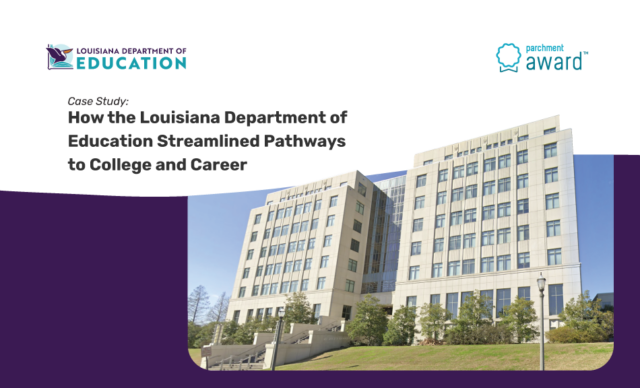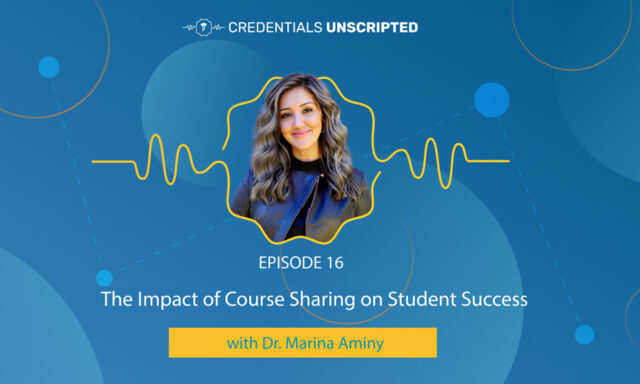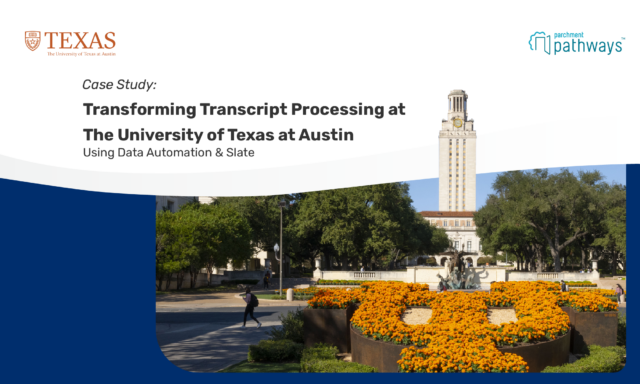A message from Parchment: It’s been a challenging time for everyone, especially for learners and educators. So, there’s never been a better time to talk about moving forward in a positive way. That’s why we created a 3-part blog post series about hope and innovation. (You can’t have one without the other.) See the links to the related posts below.
Finding the Freedom to Innovate
Rational optimist, Matt Ridley, is the author of the recently-released How Innovation Works, as well as The Rational Optimist and several other books related to science and human progress, which have sold over a million copies. He is also a biologist, newspaper columnist, and member of the House of Lords in the United Kingdom. Ridley recently participated in “The Psychology Podcast” (hosted by Scott Barry Kaufman) to share his thoughts on innovation.
Rational Optimism: Giving Young People Hope
As a rational optimist, Ridley looks at the trends of progress and says that the evidence points toward optimism. He calls this evidence-based hope because research shows that things are going in the right direction: economically, environmentally, medically, and more.
“The most extraordinary improvements have been made in our lifetime,” he said. “However, the vast majority of people think things are worse due to the media’s relentless focus on the negative. It’s important to give young people hope. It’s not what you don’t know that gets you into trouble. It’s what you think you know that isn’t so.”
Cognitive Exploration: Practicing Intellectual Curiosity
“Openness to experience means more than IQ in arts, and intellectual curiosity means more than IQ in science,” Ridley explained. “Cognitive explorers work hard and aren’t afraid to take advice. The ability to work with other people does matter because the individual innovator doesn’t matter as much as we think. Innovation is embedded in our social network and predecessors.”
According to Ridley, the number of people who want to start with the facts is small. Nuance is endangered, with social media polarizing us far more than expected as they look at restricted rather than naturally occurring samples.
Freedom to Experiment: Creating a Safe Space to Fail
For Ridley, it’s data first and theory second. What he calls a bottom-up approach to innovation. He advises that we separate the person from the process because we are all taking from the universe, resulting in the phenomenon of simultaneous invention.
Ridley emphasizes that innovators require freedom and a safe space to fail. They need the freedom to experiment, make mistakes, and backtrack. Interestingly enough, our culture generally isn’t favorable toward trial and error – but accepting mistakes as part of the process has the potential to be the foundation for a deeper understanding!
“If you have to get permission it makes it more difficult,” he concluded. “Rather than raise barriers to innovation, we should be facilitators, helping rather than hindering. The freedom to change course is the most important factor.”
What’s Next?
Contact Parchment to start the conversation about innovating YOUR credentials.
a:5:{s:11:”button_link”;a:3:{s:5:”title”;s:22:”Start the Conversation”;s:3:”url”;s:108:”https://www.parchment.com/start-the-conversation/?utm_source=website&utm_medium=unknown&utm_campaign=unknown”;s:6:”target”;s:6:”_blank”;}s:12:”button_style”;s:5:”solid”;s:17:”button_text_color”;a:1:{s:10:”color_base”;s:0:””;}s:11:”button_size”;s:5:”large”;s:20:”button_justification”;s:6:”center”;}
There’s always more to learn.





